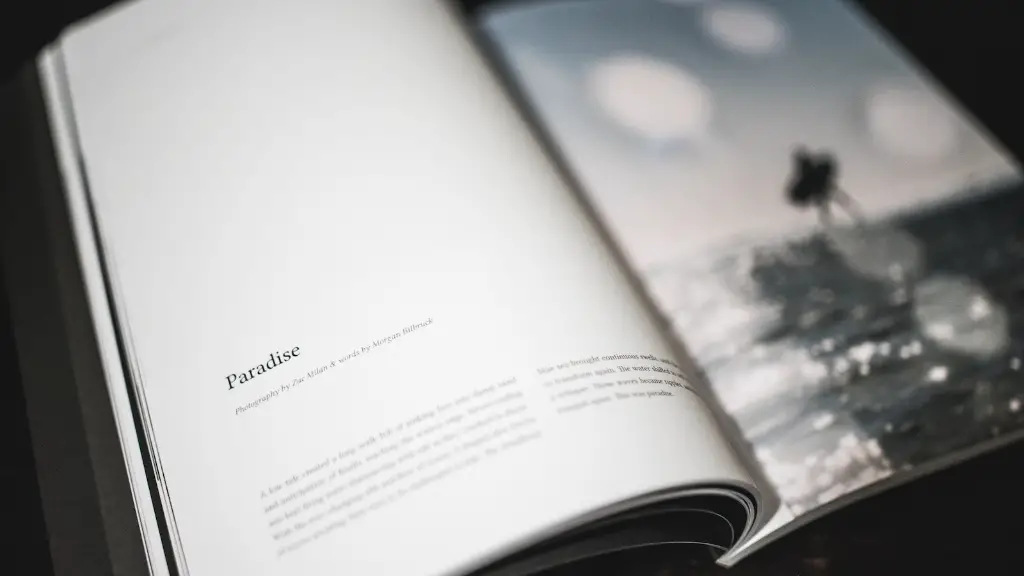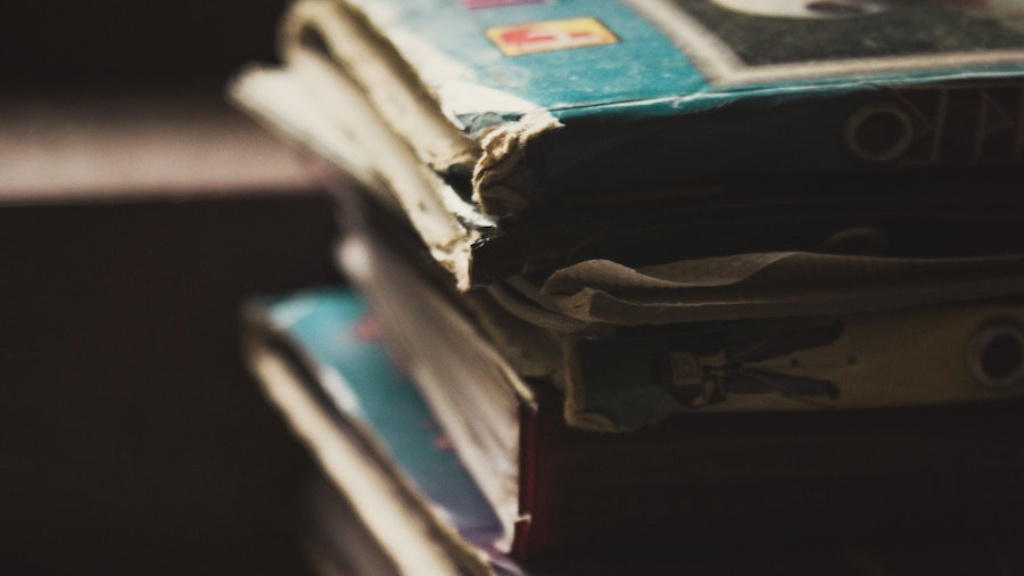Definition
Poetry is a genre of literature characterized by a set of conventions and crafted with particular language intended to evoke an emotional response. It is a form of literature that uses rhyme, rhythm, and other auditory devices to convey a mood and emotion, while also sometimes taking a deeper look into the human experience. In essence, poetry is an art form in which language is used to express an idea, emotion, or concept in a creative way. Unlike ordinary language, however, poetry uses specific conventions, such as structure, meter, rhyme schemes, and figurative language to create a unique experience for the reader.
History
Poetry is one of the oldest and most enduring forms of literature. It has been around since ancient times, as ancient civilizations wrote and sang poems as part of their oral tradition. Poetry has served as a vehicle of expression and meditation on the topics of love and loss, politics and society, and nature and philosophy. As civilization and knowledge has advanced, poets have adapted the form in varying ways, from the sprawling epics of Homer to the cryptic sonnets of William Shakespeare. Poetry has been a critical aspect of literature for thousands of years.
Types of Poetry
Although often thought of as one unified genre, poetry is actually quite diverse. There are many different types of poetry, each with its own unique structure and conventions. Some of the most common types of poetry include sonnets, haiku, lyrics, and free verse. Sonnets are 14-line poems that typically have a specific rhyme scheme and present a solitary idea or thought. Haiku are short, three-line poems with a 5-7-5 syllabic structure and often focus on nature. Lyrics are often a type of poetry that is written to be sung, while free verse is poetry that does not follow any specific structure.
Understanding Poetry
The beauty of poetry lies in its ability to evoke emotion and express intricate ideas in a way that is usually not possible with spoken language. However, understanding poetry also means understanding its structure, meter, and figurative language. Many poets employ language that may not be immediately clear to the reader, such as metaphor, similes, and other figures of speech. By studying the works of great poets, readers learn how to appreciate and create poetry of their own. Understanding poetry also requires studying the context in which the poem was written, reflecting on the author’s intentions and themes, and exploring the poem’s relationship to other works of literature.
Publishing Poetry
In the past, poets typically relied on patronage to get their work published. Several of the most renowned poets in history, such as William Shakespeare, received support and patronage from influential figures. However, in the modern age, publishing poetry can be a much easier (but still challenging) task. Poets now have access to a range of sources, from traditional publishing houses to online outlets and self-publishing platforms. Self-publishing is becoming increasingly popular, as it allows poets to share their work with a much wider audience. In any case, publishing is a critical step in the process of becoming a successful and respected poet.
Writing Poetry
There are a few principles that one can follow to write their own poetry. Generally, it is important to start with something that moves you, such as an image or phrase. This can become the focus of your piece and the central idea around which you build the poem. Additionally, it is important to consider the structure and flow of the poem, including the number of lines, the rhyme scheme, and the meter. Writing poetry is an ever-evolving process, and one should always be open to revising and changing their work. Finally, when it comes to writing poetry, it is important to read and study as much great poetry as possible. Read other poets’ work and get inspired by what you find.
The Impact of Poetry
Poetry has had an undeniable impact on the written and spoken word. Poetry has served as inspiration for other forms of literature and art, such as songwriting and visual art. It has been a way to chronicle the human experience and tell stories, imparting important lessons and perspectives. Poetry has also served as a way to explore issues of race and identity, celebrate love, and reflect on the human condition. As a form of expression, poetry will undoubtedly continue to shape the way we experience and perceive the world around us.
The Reading of Poetry
Poetry is often seen as an intimidating, complex art form and many people feel overwhelmed when faced with the task of reading poetry. To help in the reading and appreciation of poetry, it is important to slow down and read a poem several times, as each reading yields new insights and interpretations. As you read, pay attention to the words, the images, the structure, and the allusions. Additionally, when reading poetry, try to understand the poem from a variety of angles and contemplate the deeper meanings of the poem’s words and images.
The Community of Poetry
Poetry has become much more accessible in recent years, due in part to the proliferation of social media and other digital platforms. Through these outlets, poets have been able to connect with one another and share their work, opening up new opportunities for collaboration and feedback. This has helped create a vibrant and growing community of poets, both online and off, who are able to support each other’s work and celebrate their creative endeavors. As the poetry community continues to evolve and grow, it will undoubtedly lead to more exciting developments in the genre.


